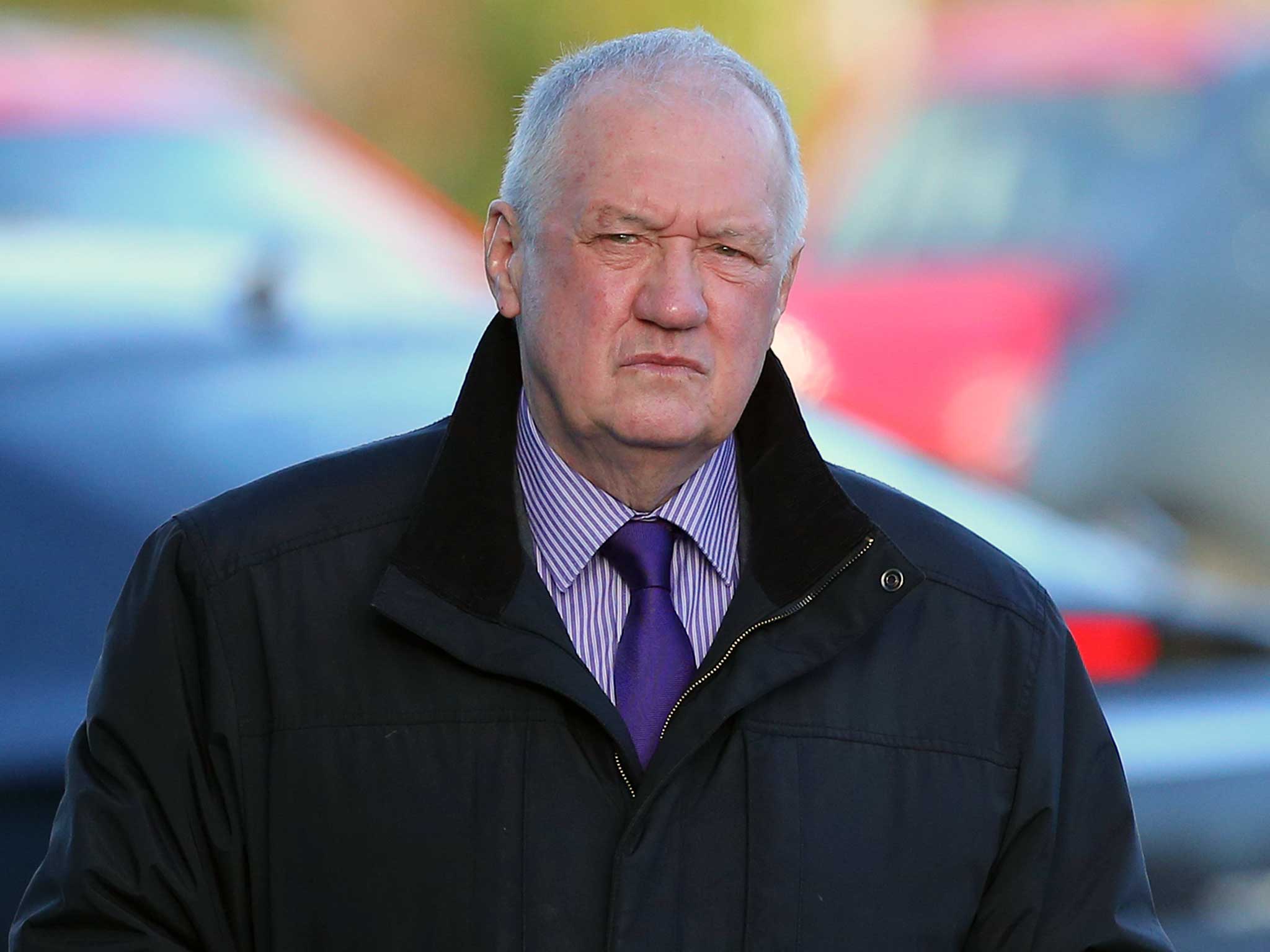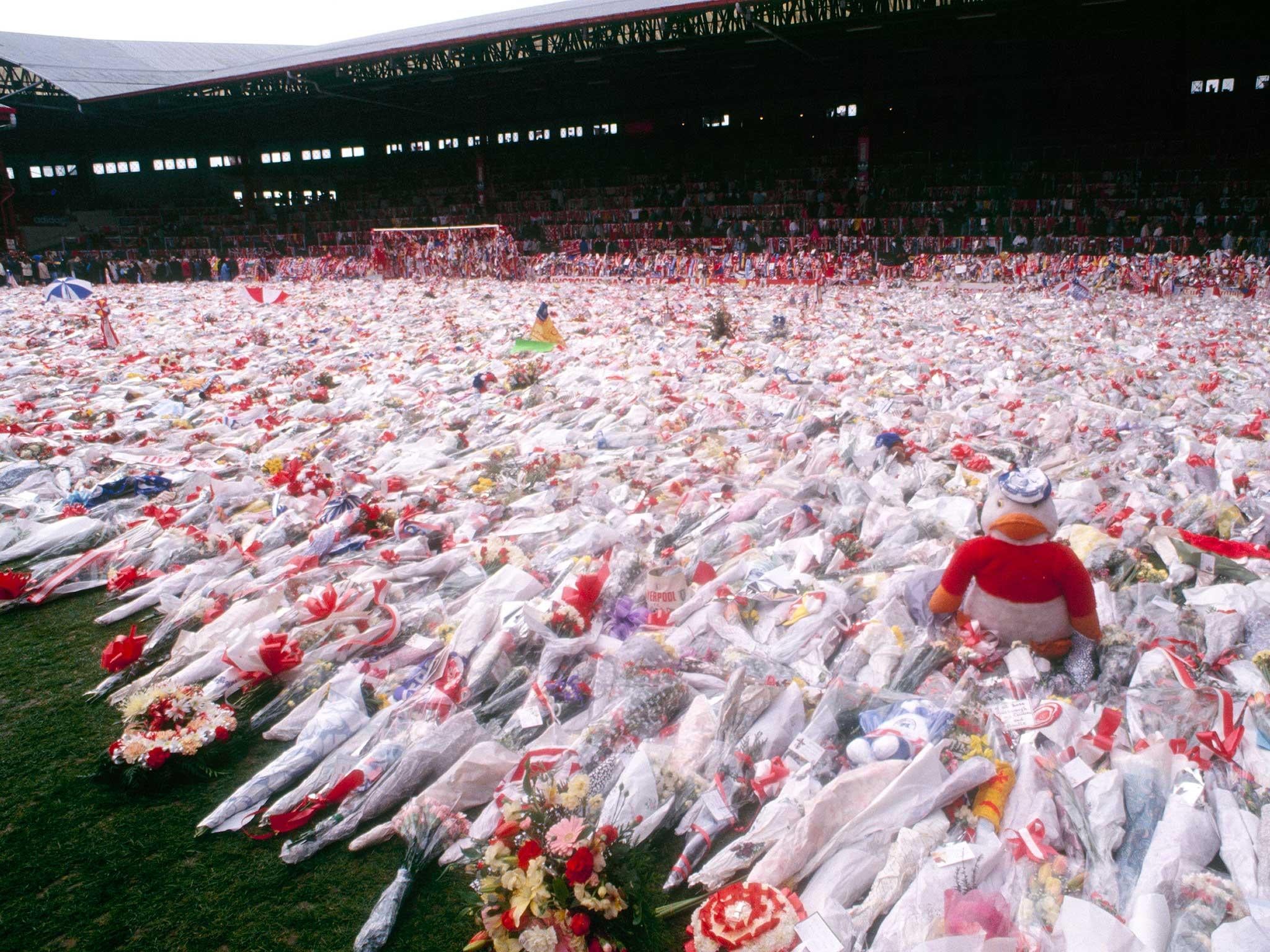Hillsborough verdict: A final reckoning for David Duckenfield – the match commander who tried to blame the fans
Jury rules police officer Duckenfield could have foreseen tragedy

Your support helps us to tell the story
From reproductive rights to climate change to Big Tech, The Independent is on the ground when the story is developing. Whether it's investigating the financials of Elon Musk's pro-Trump PAC or producing our latest documentary, 'The A Word', which shines a light on the American women fighting for reproductive rights, we know how important it is to parse out the facts from the messaging.
At such a critical moment in US history, we need reporters on the ground. Your donation allows us to keep sending journalists to speak to both sides of the story.
The Independent is trusted by Americans across the entire political spectrum. And unlike many other quality news outlets, we choose not to lock Americans out of our reporting and analysis with paywalls. We believe quality journalism should be available to everyone, paid for by those who can afford it.
Your support makes all the difference.There were moments across the course of the inquests when the crux of the matter for the families of those Liverpool fans who died – the horrific ineptitude of match commander David Duckenfield – descended into farce.
One of the witnesses whose testimony supported the view that the officer had failed catastrophically was retired chief inspector Frank Brayford who claimed Duckenfield had not even attended a pre-match briefing meeting on March 22, 1989. Brayford played the clown in court and stood up at one moment, leading the coroner to tell him he did not need to. “I’m just going to give my bum a rest,” he said, to widespread mirth.
The black humour belonged to those who have been watching Duckenfield being questioned about this for years. When a civil prosecution was brought against him in 2000, the jury was hung. But it became clear midway through this two-year process that the past was catching up with him.
But Duckenfield’s week of testimony, from March 9 last year, was the most intense period of the entire inquest and it narrowed down to an extraordinary 90 minutes of cross examination from Paul Greaney QC who produced the documents that no one else had found. He thus cornered Duckenfield, reducing to shreds both him and his claim that what he had done on the day in question – allowing exit gate C to be opened without consideration of how hundreds would funnel through it into a crush – were based on his inexperience and ignorance of the geography of the ground, for which there could be a shared responsibility.
Two pieces of evidence suggested that Duckenfield had the knowledge to foretell precisely how disastrous his actions might be. The first was an obscure item from Lord Justice Taylor’s 1990 Hillsborough report, at which Duckenfield declared he had attended a match when Millwall visited the ground which had produced the same cramming in the central pens where Liverpool’s fans died. The second turned up the fine detail of a Duckenfield letter to his own Chief Constable, suggesting he had also experienced the same crush in 1979.
He knew, Greaney put it to him. There could be no sanctity or shared responsibility in the idea that he ought to have been helped to be better prepared for that day. There could only be an acceptance that he had been in a complete state of panic and had frozen. Duckenfield’s world diminished during the extraordinary 90-minute exchange.
“Freezing is a physical action, is it not, or am I mistaken?” Duckenfield said, attempting to rally.
“What I am describing, just so you are in no doubt, is this:” the barrister said. “To use a 19th century expression, although one that is rather evocative, you bottled it, you panicked, and you failed to take the action that you knew needed to be taken to avoid consequences that you had foreseen. Now, does that describe your state at the time?”
“I disagree with you, sir,” said Duckenfield.
“Why?” Greaney asked.
“Because that's my view,” Duckenfield replied.
“Why is it your view?” asked Greaney.
“Because it is my view, and there can be no other view than mine,” Duckenfield said.
“That's your position, is it?” Greaney asked.
“It is, sir,” the former officer replied.
A mere five minutes had elapsed before Greaney came at the subject again, with a different conclusion this time.

“Mr Duckenfield, you know what was in your mind, and I will ask you just one last time: will you accept that, in fact, you froze?” asked Greaney.
“Yes, sir,” replied Duckenfield.
From that moment on, the prospect of the match commander being found to have unlawfully killed the 96 – the hugely anticipated sixth question of the 14 the jury was asked to consider and the only one on which they were not unanimous - was suddenly a possibility. The jury had to be satisfied that Duckenfield knew there was a risk of death when he fatefully opened exit gate C. Greaney established that.
It was a deeply unattractive picture of Duckenfield that the jury was presented with. He began his testimony as an upright, broad-backed, proud Yorkshireman, sipping water at first and then orange juice; defining the scope of his answers and admitting he had cynically blamed supporters for forcing open the gate. (“The lie,” as the Hillsborough Independent Panel report’s author Professor Phil Scraton describes it went all around the world. It was immediately reported by BBC match commentator John Motson and evening news reader Moira Stuart.)

But a more pernicious characterisation of Duckenfield surfaced in the testimony of others. He was in charge of the game because of the side-lining of the late Brian Mole, an ex-Chief Superintendent who paid the price for a prank in which a young officer was set upon by fellow officers. The balance of evidence suggested that Duckenfield did attend the March 22 meeting. But the past two years have also revealed that having been asked to command the match Duckenfield asked Mole, who had always been hands-on, to give him time and advice, only to find the officer, affronted by his own demotion, unwilling. Rather than tackle this problem by attending the stadium and developing an understanding, Duckenfield merely retreated to his office, sulking and smarting. The late Mole’s ex-wife, Margaret Topley, said that Mole had indicated through intermediaries that he would work for Duckenfield at the semi-final but that he had turned the offer down.
Duckenfield’s performance on the day was subsequently disastrous. Martin ‘Mac’ McLoughlin was present at the 12.30pm pre-match briefing which Duckenfield addressed – garrulously as McLoughlin recalls. “We’ve catered for every eventuality,” Duckenfield told them. Eyes rolled. “The gaffer liked the sound of his own voice,” McLoughlin remembers. His whereabouts immediately after that are a mystery. He was seemingly missing between 11am and 1pm, the inquest has heard. No one can account for what he did between that time.
His admission that he had deceitfully blamed supporters pre-empted what he might have known was coming anyway. Retired circuit judge and former Liverpool FC solicitor Tony Ensor described meeting Duckenfield and representatives of Nottingham Forest and Sheffield Wednesday at 3.30pm on the day of the disaster and remembered Duckenfield saying fans had forced the gate into the ground. Duckenfield had told them "an untruth", he said.
Under the rules governing inquests, Duckenfield could not be named on Tuesday when the jury found that the 96 had been unlawfully killed. But the evidence of the past two years has rendered it indisputable that only one individual would carry the responsibility for such a finding. It has taken 27 years and the longest inquest in British criminal history but one word from the jury forewoman was enough. Sir John Goldring asked her: “Are you satisfied, so that you are sure, that those who died in the Disaster were unlawfully killed?” She said: “Yes.”
Join our commenting forum
Join thought-provoking conversations, follow other Independent readers and see their replies
Comments